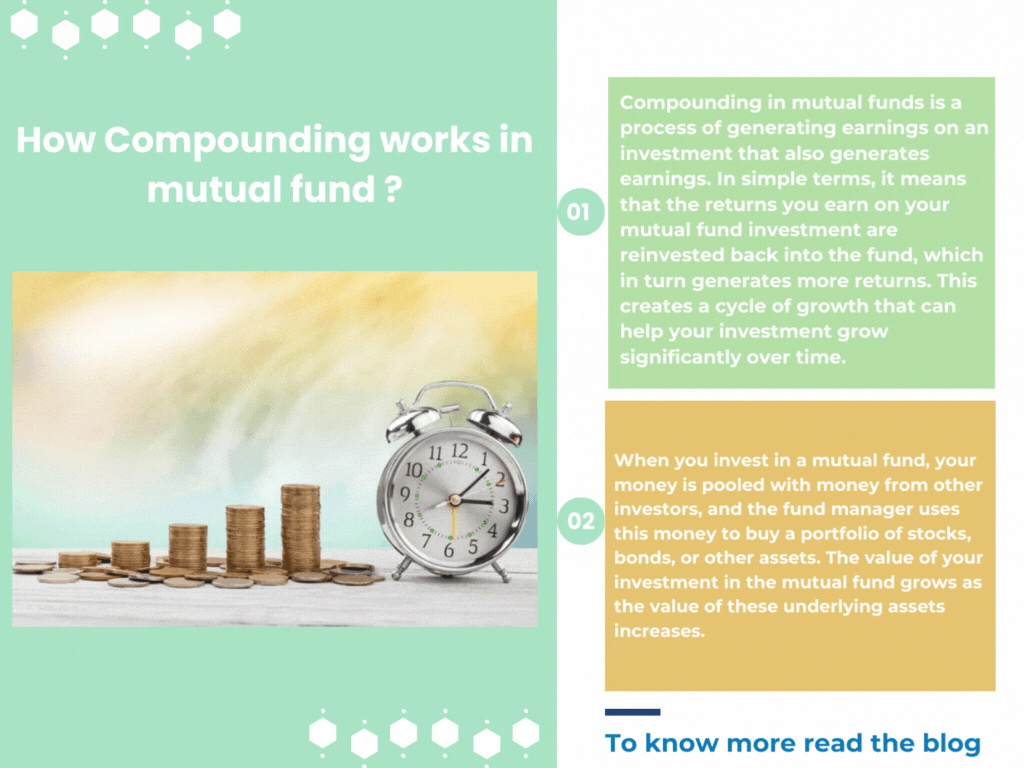How Compounding works in mutual fund ?
Compounding in mutual funds is a process of generating earnings on an investment that also generates earnings. In simple terms, it means that the returns you earn on your mutual fund investment are reinvested back into the fund, which in turn generates more returns. This creates a cycle of growth that can help your investment grow significantly over time.
When you invest in a mutual fund, your money is pooled with money from other investors, and the fund manager uses this money to buy a portfolio of stocks, bonds, or other assets. The value of your investment in the mutual fund grows as the value of these underlying assets increases.
Most mutual funds automatically reinvest the dividends or interest income they receive from their investments back into the fund. This means that, instead of receiving cash payments, you receive additional units in the fund. These additional units are purchased at the current market price, just like your original units.
Over time, as the value of the mutual fund grows, the number of units you own also increases, which means that your returns increase as well. The longer you hold your investment, the more powerful the compounding effect can be. This is because the returns you earn on your investment are reinvested back into the fund, creating a cycle of growth that can significantly increase the value of your investment over time.
For example, let's say you invest Rs.10,000 in a mutual fund that has an annual return of 8%. At the end of the first year, your investment would be worth Rs.10,800. If you reinvested the Rs.800 in dividends, you would own more units in the fund. At the end of the second year, assuming the same 8% return, your investment would be worth Rs.11,664. By the end of the third year, your investment would be worth Rs.12,597.
As you can see, over time, the amount of money you earn from compounding can be substantial. The key is to be patient and give your investment time to grow. It is important to remember that mutual funds are subject to market risks, and past performance is not indicative of future results. It is always a good idea to consult a financial advisor before making any investment decisions.


